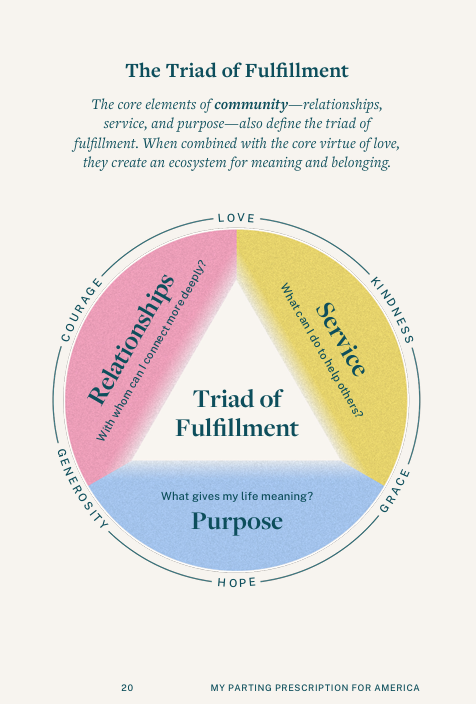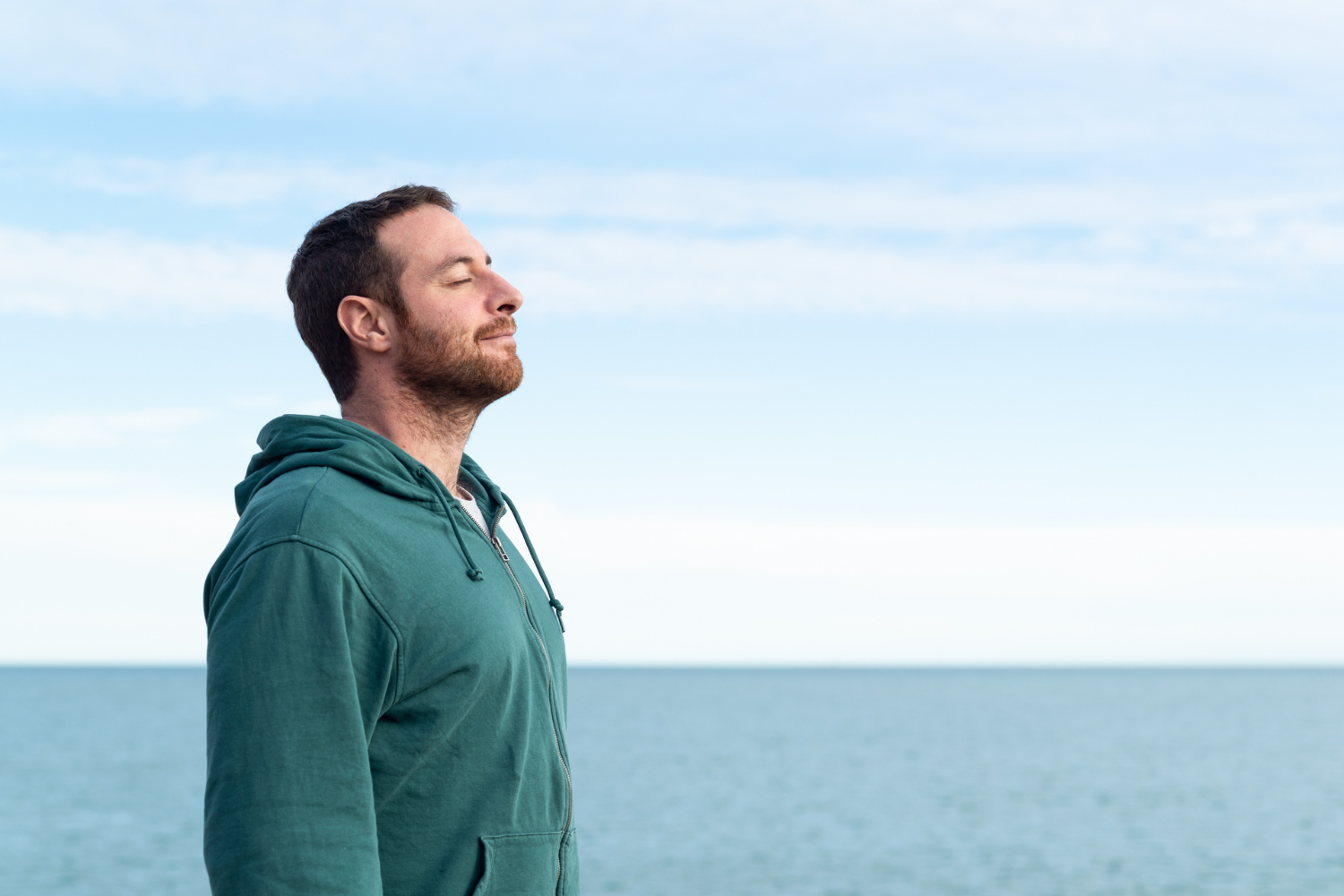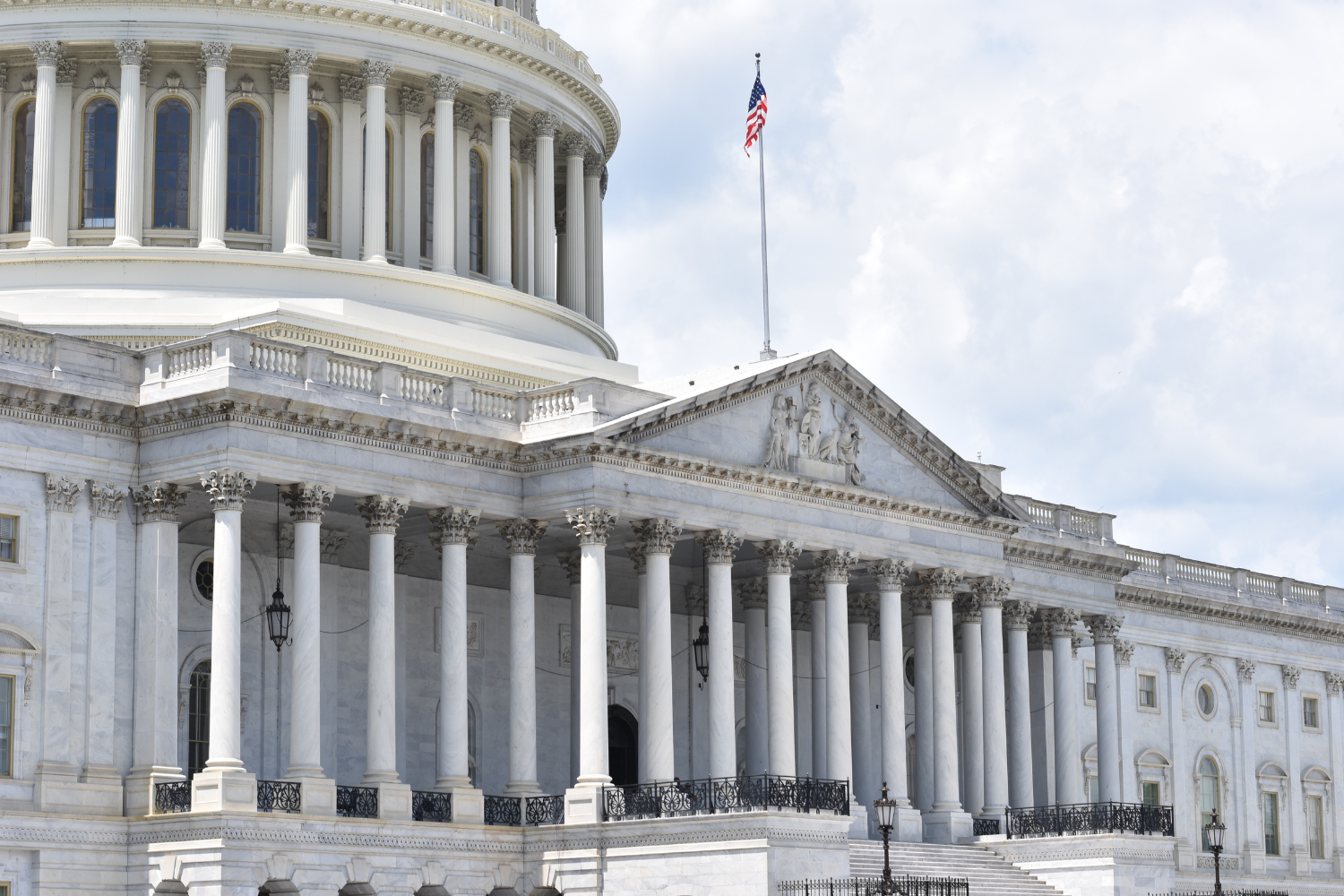As Dr. Murthy’s term serving as US Surgeon General came to an end in January, he gifted us with a parting prescription calling for individuals to come together and commit to each other, to choose community and be community builders in their own neighborhoods, schools, workplaces, family, and friend circles. In meeting hundreds of Americans across the country from all walks of life he has come to understand the core need for belonging and connecting as critical medicine for our individual and collective healing.
He has outlined three core elements needed to be a community builder--relationships, service, and purpose--and one core virtue: love. In developing these core elements and core virtue, he believes one can find fulfillment in life. In his time as surgeon general Dr. Murthy worked on bringing light to the epidemic of loneliness faced by one-third of adults and one half of the young people in America. Loneliness leads to increased anxiety, depression, dementia, heart disease, and premature death, as studies have shown. The antidote to loneliness is to connect with others and build relationships with those who see us and allow us to be ourselves, giving us a sense of belonging, which serves as another balm for loneliness. One question he proposes we ask to build better relationships is “With whom can I connect more deeply?” And then proceeding with courage and vulnerability to take the step to make that connection with another.

When rooted in the “why” we do something and not so much in the “what” we do, Dr. Murthy states we can connect with our purpose. When we can remind ourselves of the reasons behind our goals and achievements, we are able to stay attuned to our purpose, which can benefit both our physical and mental health. One question he proposes we ask ourselves when thinking about purpose is “What gives my life meaning?” Contemplating this question will help move us towards our purpose.
Virtues of courage, generosity, hope, grace, kindness are all needed to help us move forward in building what Dr. Martin Luther King Jr. referred to as our “Beloved Community,” a community that is strong, resilient, and joyful. Reminding us of Dr. King’s plea, Dr. Murthy urges us to stay committed to the virtue of love. He sees “Love as generosity and kindness. Love as hope and grace. Love as courage.” A community grounded in love can stand and withstand tests and trials, ups and downs, ebbs and flow that make up our lives.
As members of ACOFP we are part of a community whose bedrock is caring for other’s needs, caring for each other and for ourselves. As we gather virtually or in person for meetings, conferences, may we remember we are sustained by one another. We and the communities we nurture are the medicine we each seek. Let us be community builders and community leaders rooted in love. Concluding with Maxine Hong Kingston’s words we can all contemplate in the days ahead: “In a time of destruction, create something. A poem. A community. A school. A vow. A moral principle. One peaceful moment.”
Resources
https://www.hhs.gov/sites/default/files/my-parting-prescription-for-america.pdf
This document has been removed from the HHS website.





